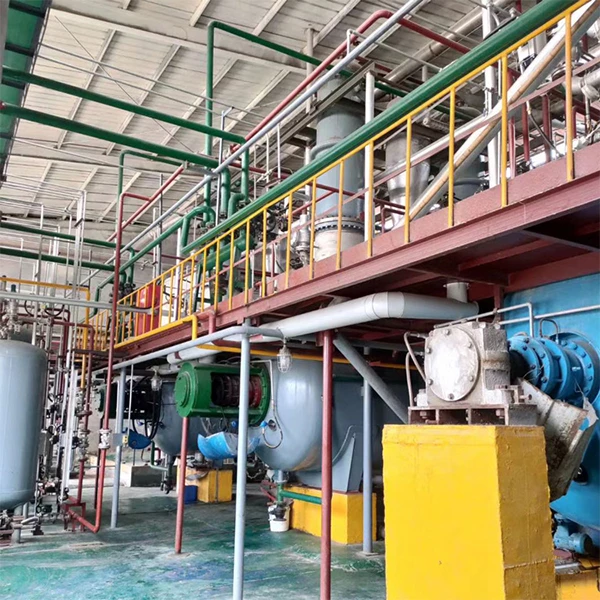Understanding Industrial Grade HPMC Applications and Benefits
Hydroxypropyl Methylcellulose (HPMC) is a cellulose derivative that has gained considerable traction across various industrial sectors due to its unique properties and versatility. This water-soluble polymer is widely utilized in construction, pharmaceuticals, food processing, and many other applications. This article delves into the properties, applications, and benefits of industrial-grade HPMC, providing insights into why it is a preferred choice for manufacturers and formulators alike.
What is HPMC?
HPMC is synthesized from cellulose, the most abundant organic polymer on Earth, through a series of chemical modifications. The final product boasts a range of functional groups that impart unique characteristics, such as solubility in water, gel formation, and enhanced adhesion. Industrial-grade HPMC is typically characterized by its purity, consistency, and tailored viscosity, making it suitable for demanding applications.
Properties of Industrial Grade HPMC
1. Water Solubility One of the hallmark properties of HPMC is its ability to dissolve in cold water, forming a viscous solution. This feature is particularly beneficial in various formulations where ease of preparation is required.
2. Thickening Agent HPMC acts as an effective thickening agent, which is crucial in many formulations. It can increase the viscosity of solutions without altering their other properties significantly.
3. Film-Forming Ability The polymer can form coherent films upon evaporation of water, making it useful in coatings, adhesives, and other applications that require a protective or decorative layer.
4. Temperature Stability HPMC showcases remarkable thermal stability, meaning it can withstand higher temperatures without losing its functional properties, which is vital in processes like hot-melt extrusion.
5. pH Stability HPMC maintains its properties across a wide range of pH levels, making it suitable for diverse environments, from acidic to alkaline conditions.
Applications of Industrial Grade HPMC
The versatility of HPMC opens up a wide range of applications across various industries
1. Construction Industry In construction, HPMC is commonly used as a thickening agent in mortars, plasters, and adhesives. Its water-retention properties extend the working time of cement, improving the ease of application and final strength.
industrial grade hpmc

2. Pharmaceuticals HPMC is utilized as a binder and film-coating agent in drug formulations. Its controlled-release properties make it an excellent choice for ophthalmic and tablet formulations, allowing for sustained medication delivery.
3. Food Industry In food processing, HPMC serves as a stabilizer, emulsifier, and thickener. It is often found in salad dressings, sauces, and ice creams, enhancing texture while ensuring quality.
4. Cosmetics and Personal Care HPMC plays a significant role in cosmetic formulations, providing thickness, stability, and a pleasant feel on the skin. Its use in creams, lotions, and gels ensures optimal product performance.
5. Other Applications The polymer is also found in various other industries, including paint and coatings, where it enhances texture and application properties, and in textiles, as a binder for non-woven fabrics.
Benefits of Using Industrial Grade HPMC
1. Improved Product Performance The unique features of HPMC contribute significantly to the overall performance of formulations, enhancing their effectiveness and efficiency.
2. Ease of Processing Its solubility and compatibility with other ingredients facilitate smoother manufacturing processes across different industries.
3. Regulatory Compliance HPMC is non-toxic and compliant with food and pharmaceutical regulations, making it a safe choice for sensitive applications.
4. Cost-Effectiveness While providing high functionality, industrial-grade HPMC can be cost-effective due to reduced wastage and higher product yields.
5. Customization Available in various grades and viscosities, HPMC can be tailored to meet specific requirements of formulations, ensuring optimal results.
Conclusion
Industrial-grade HPMC plays a crucial role in modern formulations across diverse industries, showcasing its versatility and effectiveness. With its unique properties and wide-ranging applications, it stands out as a key ingredient that enhances product performance while ensuring compliance and safety. As industries continue to evolve, the demand for reliable materials like HPMC is expected to grow, solidifying its place as a staple in the formulation toolkit. Manufacturers looking to innovate and enhance their products should consider the benefits that industrial-grade HPMC can offer.
-
The Application and Significance of Construction RdpNewsMay.19,2025
-
Industrial Grade HpmcNewsMay.19,2025
-
Building Coating Adhesive Building Coating Adhesive HpmcNewsMay.19,2025
-
Application Of Hpmc For Detergent For Detergent In DetergentsNewsMay.19,2025
-
Application Of Hpmc Cellulose In Cement-Based MaterialsNewsMay.19,2025
-
Application Of High Quality Hpmc For Construction In The Field Of ConstructionNewsMay.19,2025




